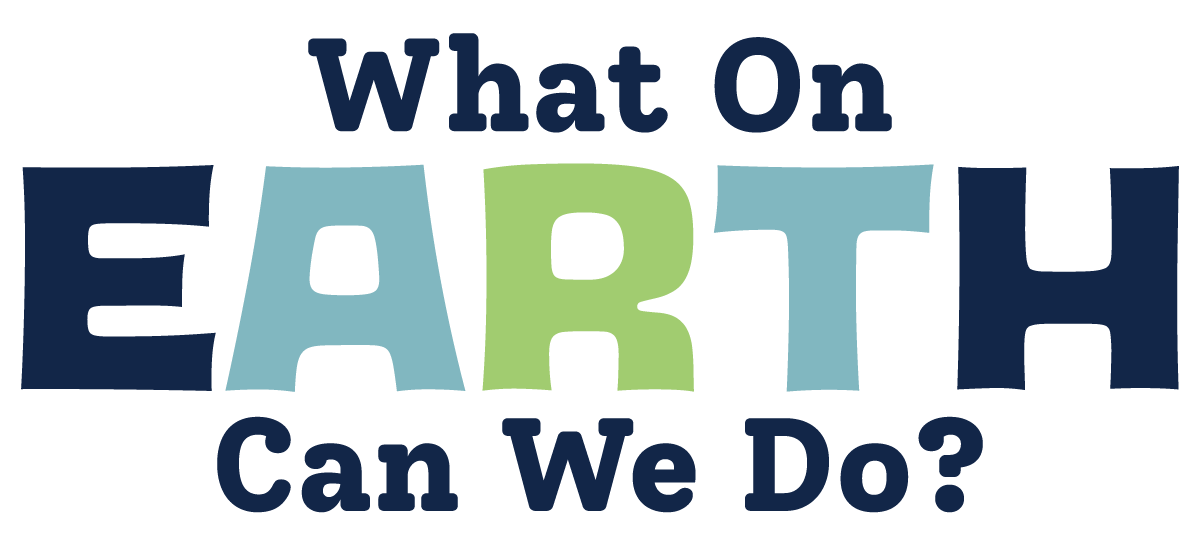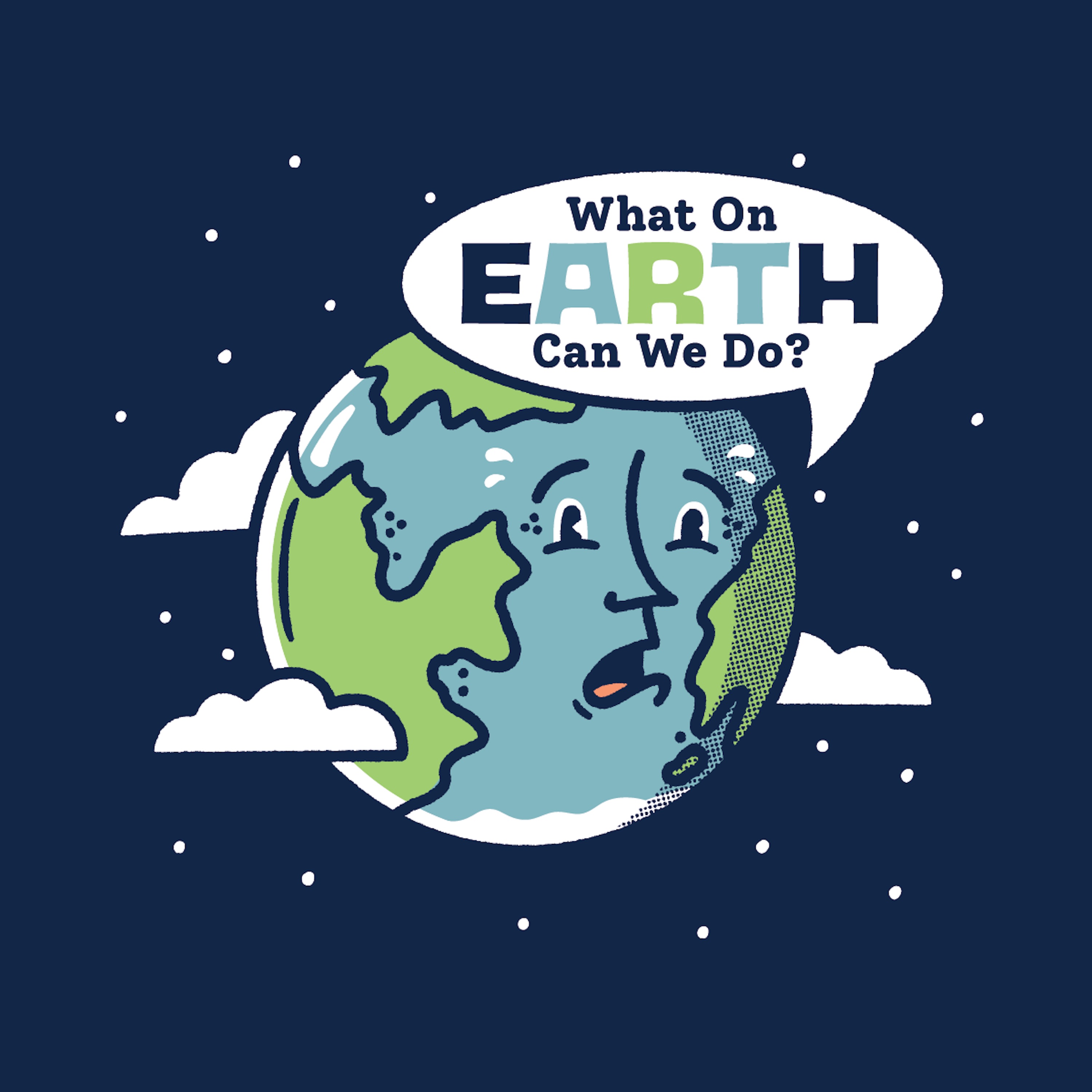Episode 6
How One Alberta Community Rescued Nearly a Million Pounds of Food
What if every community could rescue its food waste — and feed its neighbours at the same time?
In Lacombe, Alberta, Echo Food Rescue is proving it’s possible. Since 2020, this volunteer-driven program has saved nearly one million pounds of food from the landfill, redirecting it to farms and families across their community.
In this episode, we sit down with Christina Sturgeon, program coordinator at Echo Food Rescue, to talk about how the initiative began, what it takes to keep it running, and the powerful role community collaboration plays in fighting food waste.
Learn more about Echo Food Rescue: https://www.echofoodrescue.com/
–
The What On EARTH Can We Do? podcast is a program of the Alberta Emerald Foundation (AEF), a registered charity dedicated to accelerating environmental excellence across Alberta.
Thank You to Our Sponsors:
Capital Power, Government of Alberta, the Forest Resource Improvement Association of Alberta, Pathways Alliance, City of Edmonton, TD Friends of the Environment, and City of Calgary
Disclaimer:
The views and opinions expressed by our guests do not necessarily reflect those of the Alberta Emerald Foundation. As a non-partisan organization, we are committed to presenting diverse perspectives on environmental issues.
Transcript
Christina: Oh, thank you for having me. I'm excited to be here.
Bri: , Really excited to chat about Echo Food Rescue. You know, I visited Echo Food Rescue this summer when we came to film the EM Emerald documentary series, but to have the opportunity to sit down and really dig deep into it is really exciting.
So for people who aren't familiar with Echo Food Rescue and what you do. Can you explain what the problem you're working to solve is and why this kind of work is needed in a community like Lacombe?
Christina: So, the problem we're looking to solve is, uh, it, it's a couple different things. One is, keeping food out of the landfill.
munity. You know, you listen [:I think it's in 2050, maybe even 2030. Uh, and they're looking at solutions for that. And you know, from my perspective, uh, just looking at how do we waste less food and there would that. Whole feeding your community, you know, as the population grows, would be less of a conversation if we had more conversations around, um, making sure we're not wasting as much food as we are currently.
Bri: Absolutely. And, and to that point of, of how much food we're wasting. You see, and, and I saw firsthand at least one day of waste from just a couple grocery stores in Lacombe. How common is it for good edible food to end up in the garbage, even in smaller communities like Lacombe?
Christina: Oh, it's so common. Um, you just think about, the.
mall group of volunteers and [:Like literally on average, it's about 30,000 pounds a month. 30,000 pounds a month.
Bri: Oh my goodness.
Christina: Crazy. And that's only like such a tiny portion of the businesses that could be, um, working with us and donating this food, uh, to the food rescue. Um, that being said, you know what, what we do there is we take in.
Any and all food. And then our volunteers sort that food and we, we split it up between what is still good, edible food, good for human consumption, and then whatever isn't good still, we send, we have partners who are farms and we send that to farms for animal consumption. So yeah, the, the scale of food waste, like, I can't even, it, it's hard.
Every single thing that was [:Bri: And when you think about that, Lacombe is, is in comparison to Edmonton and Calgary, a smaller community in Alberta.
And if you think about the fact that there are. . Like I, I can't even count how many grocery stores I couldn't even try in Alberta. And, you know, the day that we visited you, I think there were two grocery stores that we were picking up from and to see the amount of waste. But then when you compound that across the province and across Canada and across the world, you know, this season we've talked about the, the large scale of food waste and how big of an issue it is.
pounds of food since:Um, what does that kind of impact look like in terms of the environment? How are you helping the environment by saving this food?
Christina: Well, you know, to put it into perspective and, and it actually, you know, when you're working on this every day, every year, I, you know, daily we add up our weights, you know, a yearly, we add up the weights and put that out to the community.
This year we save this many. Thousand pounds of food, or hundreds of thousands of pounds of food. But until the Emerald Awards came about, I had never, and this is crazy, but I had never added all those years together. And to put it into perspective, how much food waste is out there, um, we are, by the end of this year, we'll be at approximately 900,000 pounds of food rescued.
million pounds. That's since:Imagine how quickly that would compound within a, uh, the larger communities like that. And like I said before, we're only rescuing a very small portion of the amount of food that's actually going to waste in our community. So yeah, the, the impact is, is incredible. And you know, if you look at it from the environmental perspective.
Imagine, and I don't have exact numbers in front of me, but how many, how much greenhouse gas that keeps out of our environment, that million pounds of food. Like, and not only is it, you know, doing things to help the environment, but it's also going back into the community. Part portions of that. Um, and also helping people within our community, you know, not only, and we, like, we don't ask anyone anything, um, when they come to pick food up.
o we're not like a food bank [:That's what it was grown for, produced for, um, instead of having it rot in a landfill. So yeah, the, the impact is crazy on the environment.
Bri: Absolutely. To hear about, you know, in, in a five year span, um, six year span, a a million pounds from, like you said, a small community of 14,000 people is absolutely incredible.
director, to come in and see [:So, so excited to contribute to this incredible cause. You know, when, when the van is backing up into the building so that people can unload the food that you just picked up from grocery stores, they, they were just, you could see the excitement in their faces, those doors open and they're just, they're on it.
They're ready. And then to see the people who are coming to pick up this food, the enthusiasm that they have. It, it was really incredible. Marissa and I were really moved after we left and we thought, why do we not have this in every single community? So, you know, I'd love to, to hear your perspective on this community involvement of these volunteers, and then how that affects the program.
Christina: Uh, definitely I, you know, I work and volunteer with, uh, a few different organizations and getting volunteers is always a big topic of conversation. You know, it's, it's tricky for some places to get enough volunteers to operate. Echo, however, is not one of those places. Um, so I think there's a couple things that have happened over the last five years.
Um, [:They're doing something great for the community. I always say to people, it's hard to have a bad day when you're giving away food, right? Like it, it's. Just good for the inside of you to be there all the time. Um, but it's also built this community of people on the outside of the building, so meaning the, um, I call them our food rescue partners because without them coming to pick the food up, we wouldn't have anything to do.
, it's become a place where, [:Um, you know, you're doing great things in the community. you know, I always say I, yes, I am the only, uh, paid employee there, but I'm not, I'm not really the boss. They, they, uh, you know, are the boss of me. I just, I just do things like, you know, the things that nobody else wants to do, right? Set the schedules and, and those kind of things.
But yeah, without them, like, I couldn't do. What I do there, you know, they're, they just, um, they just make my life and my job really easy because they're so committed to what we're doing.
Bri: And another key piece of this whole picture, uh, this whole puzzle is not just you, not just the volunteers, but the, the grocery stores that you work with.
And I'd love to dive into that a little bit more, um, because when we were, when we were visiting you in Lacombe, we were talking about how you got these businesses on board, um, you know, what the relationship is like with them and, and how they determine what food is going to be sent to you guys to be rescued.
Can you talk a little [:Christina: So that has been one of the more difficult pieces of my job. Um, when I first came into it, we had one large grocery store chain that we were working with, um, already, but in order to build the amount of food that we're bringing in, I had to find a way to get others on board.
Um, and the tricky part about it really is a lot of time that corporate, you know, ideas around the food donation. Um, and so it took quite a few years to build that up. originally we were working with the one grocery store, some restaurants, some farms. Quite a few farms in the area are really great. and then it took a few years to get some more grocery stores on board.
food that you know is still [:That's allowed us to go into a grocery store and take all of what they have. So now we're providing a service for them, and you know, and they're doing a good thing for the environment. Instead of this just going into a dumpster and going in the landfill, you know, it's going back into the community.
It's not only helping people, it's helping animals. It's, you know, so building that relationship with the grocery stores has been probably one of the most difficult pieces for me. Um, but it's definitely been rewarding and I hope that we are, you know, trailblazers in the way that. If we can create something that works really well on both sides, um, that the next organization that comes along after us has a little bit of an easier time getting into these, um, grocery stores.
kind of kind of selling the [:I've had this idea in the past that I've wanted to do similar to this, or this has sparked something in their minds. What advice would you give them to help them create something similar, whether it's in a small community like Lacombe, or in a larger community like Edmonton or Calgary? What would your advice be to them?
Christina: Uh, I would say get, get your community involved. You know, like really this is a, a real community effort. Um, we have, uh, a vehicle that's partially sponsored by Lacomb Ford. Um, that's the only way we could afford a brand new electric vehicle, which kind of goes along with what we're doing too. Um, we have a space that is, you know, we pay our rent, but it's heavily sponsored by the, the business that's in the rest of that space.
y different community groups [:'cause one, first off, you need a space. To be able to do the sorting and, you know, bring the people together and then distribute the food. Um, secondly, you know, you need a vehicle to be able to pick those, pick up the food. So those are the two biggest things. Um, and really your community could be a huge resource for that.
And that's, that's how it works in Lacombe. The other thing that we're very lucky in Lacombe that we have is we have what's called the Echo Lacombe Association. and they're the ones that, that fund this program. Um, so that would be the other key thing would be to find organizations that are willing to fund or, you know, create your own, your own nonprofit so that you can apply for grant funding and those sorts of things.
ut there and find, you know, [:And he started bringing on, uh, different farms in the area so that, you know, it just starts with one. You know, one person, one person has this idea and they find more people in the community that are willing to support, and it just kind of grows from there.
Bri: Absolutely. I think it, it takes a village, you know, any, anything that you're wanting to do that, that has the end result that's purely just beneficial. There's, there's no profit to it, it's just you wanna do something good for people and for the environment. I think you need to come together as a community and make that happen and really rely on not just the, um, the resources that other people have, whether that's connections, um, but.
ssion, you can make a lot of [:You do, you do need a space. Um, you're gonna need funding for certain things. You need those connections. You're, you're gonna need a vehicle. So to kind of have that broad understanding of how a program like this works is really useful, I hope that people listening, um, are, are inspired to create something like Echo Food Rescue in communities across Alberta and across Canada because I think the one thing I've learned from this season.
Speaking to experts and people who are on the ground is, this is a huge, is issue, but it's an invisible issue that, you know, a lot of food waste happens at home, but a lot of food waste also happens at the grocery store. And because we're, when we go to the grocery store, we're just seeing what's put out.
We're not seeing what's in, in the dumpster or, you know, at home. So I'm so grateful, uh, Christina, for you joining us on the podcast to talk about this really incredible organization that you have and, and the incredible impact that it has had across Lacombe.
ristina: Thank you very much [:They, to get going.
Bri: Absolutely. Well, thank you Christina, for joining me on the podcast today. It's been so wonderful having you.
Christina: Thank you.


